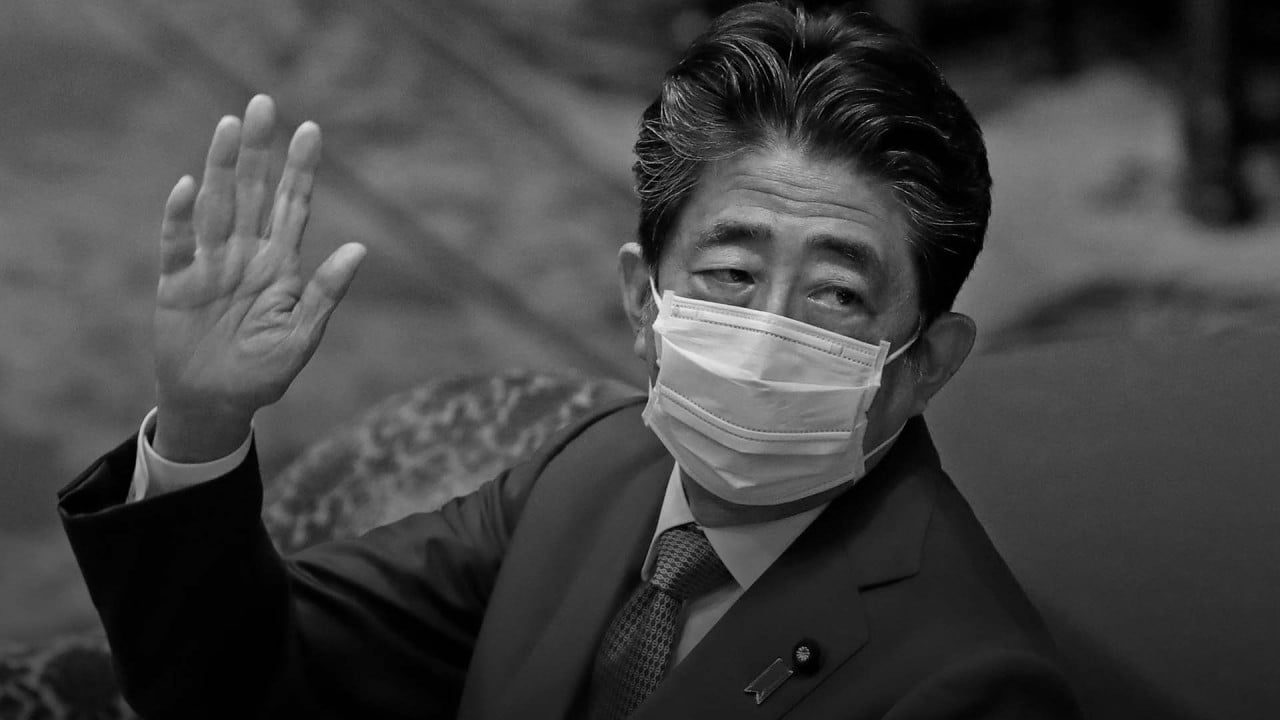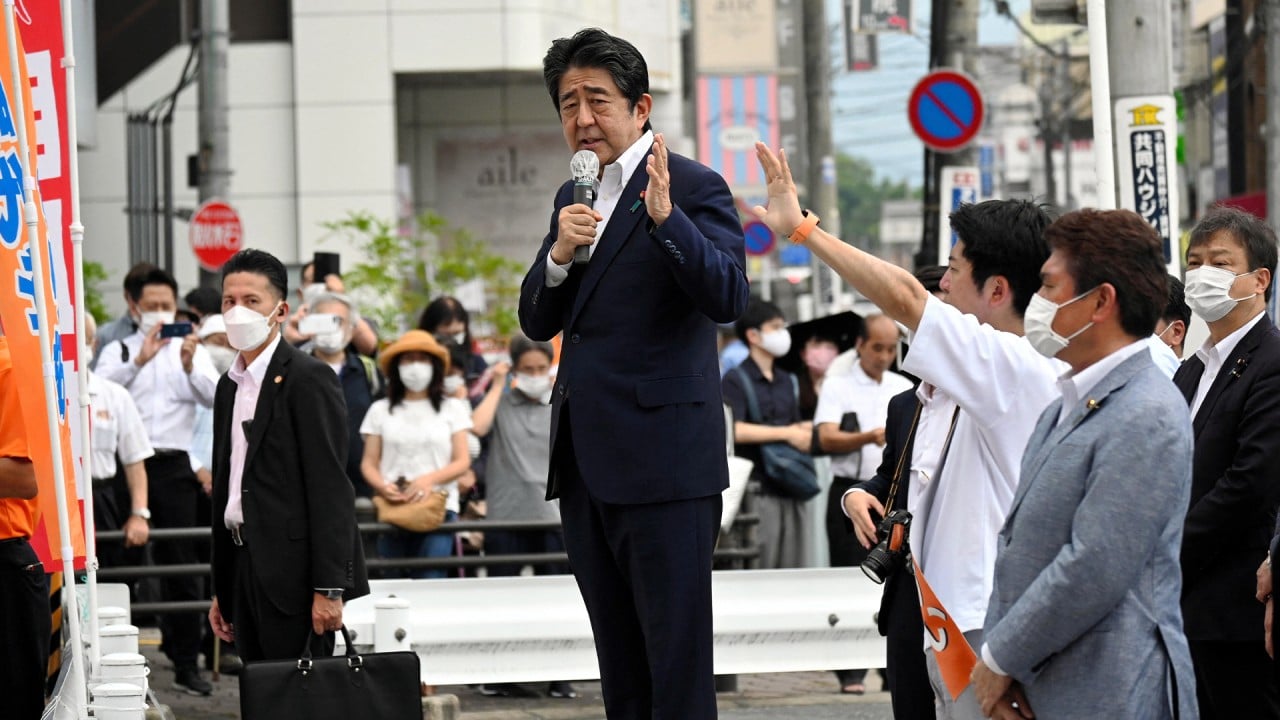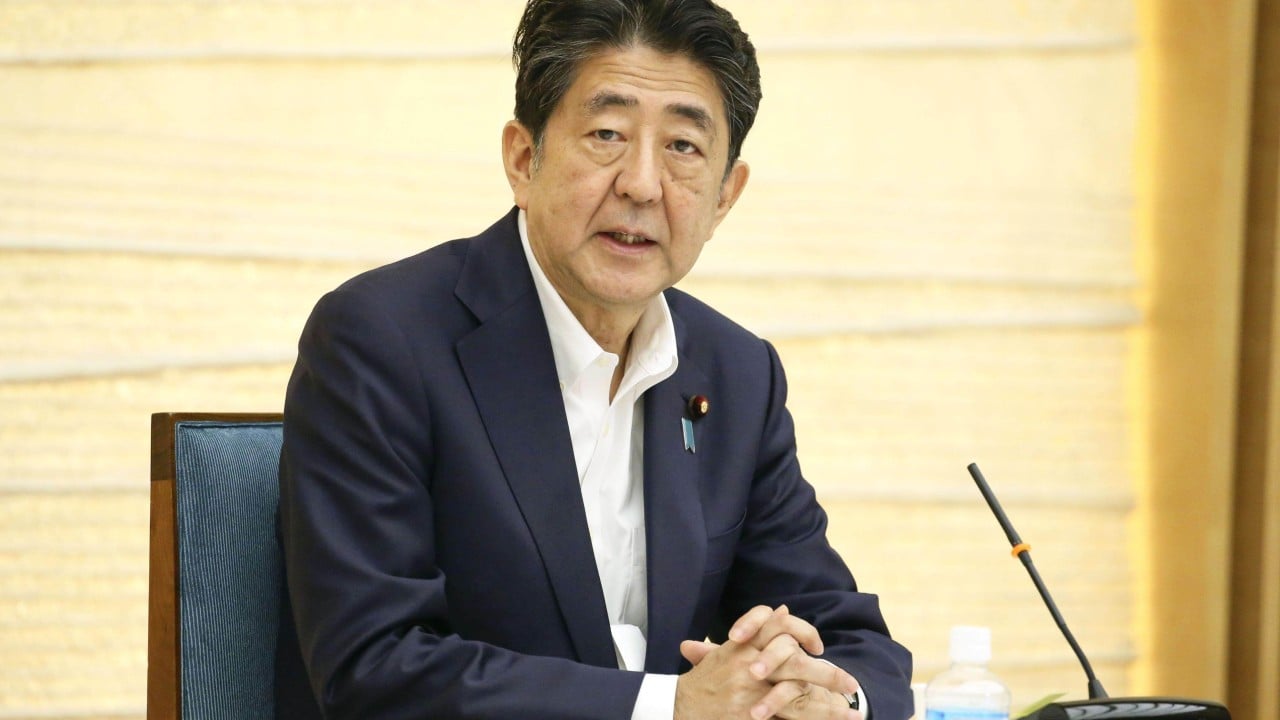
03:24
The triumphs and tribulations of Japan's former prime minister Shinzo Abe
Chinese President Xi Jinping conveys ‘deep regret’ over sudden death of ex-Japan leader Shinzo Abe
- ‘Abe worked hard to improve China-Japan relations,’ Xi Jinping says in message to current Prime Minister Fumio Kishida following assassination of former leader
- Xi’s wife Peng Liyuan also sent her condolences to his widow Akie Abe
“I deeply regret the sudden death of former prime minister Abe,” Xi said in his condolence message sent to current Japanese Prime Minister Fumio Kishida, according to Chinese state news agency Xinhua.
“Abe worked hard to improve China-Japan relations during his tenure … he and I had reached important consensus on building China-Japan relations for the new era.”
Xi added that he was willing to work with Kishida to further promote relations between the two nations.
Abe, 67, served two separate terms in the top job, including a near eight-year run from 2012 to 2020 – the longest uninterrupted stint in power for a Japanese leader in the post-war era.
Beijing grapples with Abe’s mixed legacy on China-Japan relations
But relations warmed during the rest of that term, with Abe making a rare visit to China in 2018. Xi was expected to make a return visit in 2020, which would have marked the first trip by a Chinese president to Japan since 2008. But the plan was shelved because of the Covid-19 pandemic.
However, Abe had been more vocal against Beijing since stepping down in 2020 over health reasons, including saying an invasion of Taiwan would pose a significant threat to Japan and the Japan-US alliance. Beijing dismissed the remarks as “nonsense”.
The Kishida government has also called for increased defence spending and voiced concern over threats faced by self-ruled Taiwan. Kishida has also said he was disappointed by Chinese efforts to develop areas in the East China Sea, calling the moves “unacceptable”.
Xi’s wife Peng Liyuan also sent her condolences to Abe’s wife Akie, Xinhua reported on Saturday.
John Lee Ka-chiu, the chief executive of Hong Kong, also expressed his condolences on Abe’s death.
“Hong Kong and Japan maintained closely cooperative relations when Mr Abe was in office as the prime minister of Japan, during which [time] the two places enjoyed close ties and made positive progress in various areas including economic and trade affairs, tourism and cultural exchanges,” Lee said in a statement on Saturday.
“I express our deepest sympathies on the passing of Mr Abe. May he rest in peace”.
Additional reporting by Reuters



